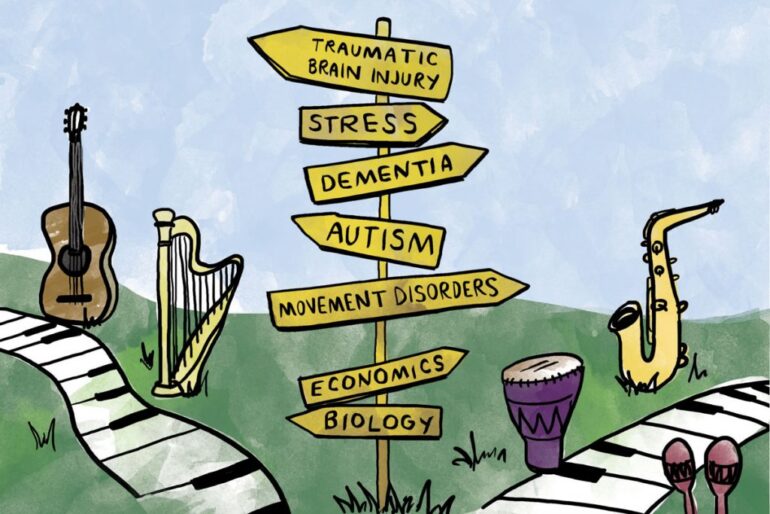In a world filled with constant hustle, stress, and turmoil, the search for successful therapeutic methods has never been stronger. Although many take the conventional approach, the new domination in the realm of clinical therapy is music. Beyond its entertainment values, music has been shown to offer a variety of benefits, ranging across physical, mental, and emotional health.
Emotional Health
For those that struggle with expressing emotions, music is a universal language that can be understood by all. Music changes the way we perceive the world. It provides a safe environment to enhance interpersonal connections. Music therapy allows individuals to discover emotions they have been too afraid to explore.
Babies are proof that music represents a profound form of communication. According to research at the University of Montreal “babies tend to be twice as calm when listening to music than they do when you’re talking.” The gentle melodies and repetitive rhythms imitate the mother’s heartbeat helping them to create a safe haven filled with security.
For those that struggle with memory loss such as dementia or Alzheimer’s disease, music serves as a time capsule, preserving moments from our past. Personalized playlists, specific genres allow therapists to help those that struggle with finding positive memories, to make new memories and reduce their anxiety.
Mental Health
Research shows stress causes 60% of illnesses and diseases. Scientific studies have shown that engaging with music stimulates regions of the brain, through fostering neuroplasticity, which enhances cognitive abilities. Music has the ability to improve memory as it reduces the risk of diseases associated with the neurological side such as Alzheimer’s and Parkinson’s disease. The soothing melodies and harmonies help regulate emotions, and maintain a sense of peace in the bustling brain.
Physical Health
Music plays a significant role in the field of physical rehabilitation. Carefully chosen patterns, melodies, and rhythms help in motor coordination, and alleviate pain by increasing the release of endorphins, serving as a distraction from discomfort during harsh procedures. Music therapy reduces the amount of pain medication needed by providing 50% of the patients better control over their emotions, helping relieve depression in patients.
Although music therapy provides a range of benefits, there are possible outcomes or side effects to look out for. Playing certain music can also trigger harsh memories that we may choose to not experience again. However, the ongoing exploration of understanding music’s therapeutic ability is encouraged by healthcare practices. We can begin this journey of discovery, resilience, and healing by embracing this new technique.



